Managed Beehives for Your Property in Atlanta
The Best Bees Company maintains a nationwide network of data-yielding beehives to monitor ecosystem health and fuel research on pollinator habitat and biodiversity. Since 2010, we’ve worked with individuals and organizations to collectively make a positive impact on the environment.
Request a Phone Assessment
Find out if your property is right for bees
Our Mission
Our mission is to promote and protect biodiversity and pollinator health here in Atlanta and across the country. Our local beekeepers install and manage beehives on your property, collecting hive health data points at every visit. This wealth of data is used to drive the science of pollinator and biodiversity health forward with scientific partners including the Urban Beekeeping Lab, NASA, MIT, and National Geographic.


Beekeeping for Your Commercial Property
If you would like to make a difference for your local environment, help protect pollinator and ecosystem health, and engage stakeholders, investors, and your community in a unique and turnkey environmental initiative, then our commercial service is for you! In addition to full-service professional beekeeping, we also offer a range of products, deliverables, educational events, and advanced data reporting designed to support a variety of goals.
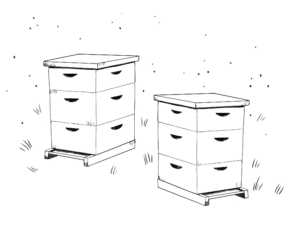
Commercial Services
Beekeeping for Your Backyard
If you would like to help build a healthier environment, contribute to pollinator research, pollinate your garden, and have your own honey harvest, then our residential service is for you! We offer full-service professional beekeeping designed for homeowners in a wide range of environments. Regardless of the size of your property, we can set up and tend a hive — or several hives — for you.

Residential Services
Beekeeping Education
![]()
We offer a number of educational programs at varying price points that have proven popular with commercial clients, schools, gardening clubs and organizations promoting sustainability.
Pre-recorded and live hive tours
Experience a guided tour as one of our bee experts takes you on a walk-through of your hive visits and inspections. Get a glimpse of the busy life of bees, and learn more on how to keep tenants engaged with their local environment.
Meet an expert beekeeper
Participate in a beekeeper-led webinar and Q&A session. This virtual event is a great opportunity to learn about your bees through the lens of a beekeeper. We’ll discuss the data collected from your beehives, why bees matter, and what it's like to take care of your bees.
Virtual keynotes
Gain insight into the world of bees with our Chief Science Officer and Founder, Dr. Noah Wilson-Rich. Noah's knowledge of honeybee health and his passion for bee research will leave your audience spellbound, and with a wealth of new insight about our natural world. Our virtual keynote package includes signed copies of his book, The Bee: A Natural History.
We also offer free educational opportunities, such as white papers, blogs, research reports, and webinars.
How Professional Beekeeping Works
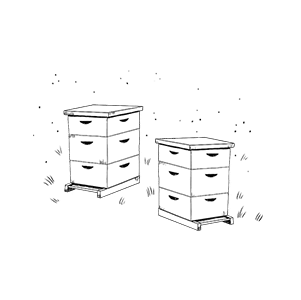
Installation
We help you choose an ideal location to establish one or more beehives at your home or workplace.
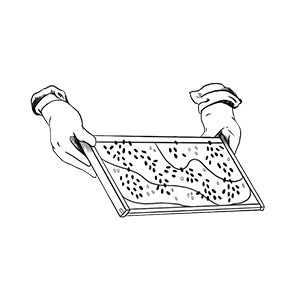
Maintenance
Our dedicated and experienced beekeepers service your beehives once a month, providing high-quality care and detailed reports.

Harvesting
Our team brings the honey frames from your hive back to your area’s operations center for small-batch extraction and bottling.
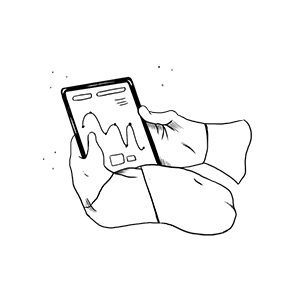
Research
At every visit, beekeepers collect data points on the status, population, productivity, and health of your honey bee colonies.
Safe
Best Bees’ hives are stocked with Apis mellifera ligustica. Bred for passivity, they’re considered to be the most docile species of honeybee.
Secure
Our beekeepers have extensive experience working in densely populated areas in and around Dallas. This includes on rooftops, corporate campuses, and residential neighborhoods.
Insured
We have a full insurance policy and can provide you with a certificate of insurance (COI) if needed. Notably, Best Bees has never had to file an incident report since our operation began in 2010.

Beekeeping Laws in Atlanta and Georgia
Georgia is a very beekeeping-friendly state; the state law actually prohibits any local governments from passing any laws against keeping bees.
Atlanta Service Area
We service hives in a 60-minute driving radius from the Atlanta city center, including in parts of the following counties:
Fulton County
Cobb County
Henry County
Gwinnett County
Dekalb County
Clayton County
Douglas County
Rockdale County
What's Included
- Site evaluation
- Hand-crafted, all-natural beehive equipment installed onsite
- Colonies of docile, Italian honey bees (Apis mellifera ligustica)
- Maintenance and care from experienced beekeepers
- Full-time customer service team available by phone or email
- Pest control treatment methods, including Varroa mite treatment
- Replacement colonies as needed
- 5-10lbs of 100% raw honey
About Local Honey
Honey production varies from colony to colony, depending on the strength of the queen, the health of the hive and the availability of nourishment. New colonies tend to produce less honey than established ones. When there is a surplus of honey, we will harvest and jar it for you.
The composition and flavor of honey varies from hive to hive as well, depending on the floral species available to pollinate. This means that honey from your hive will have a unique profile. Tasting it, you’re tasting the composite of all the flowers your bees have visited!
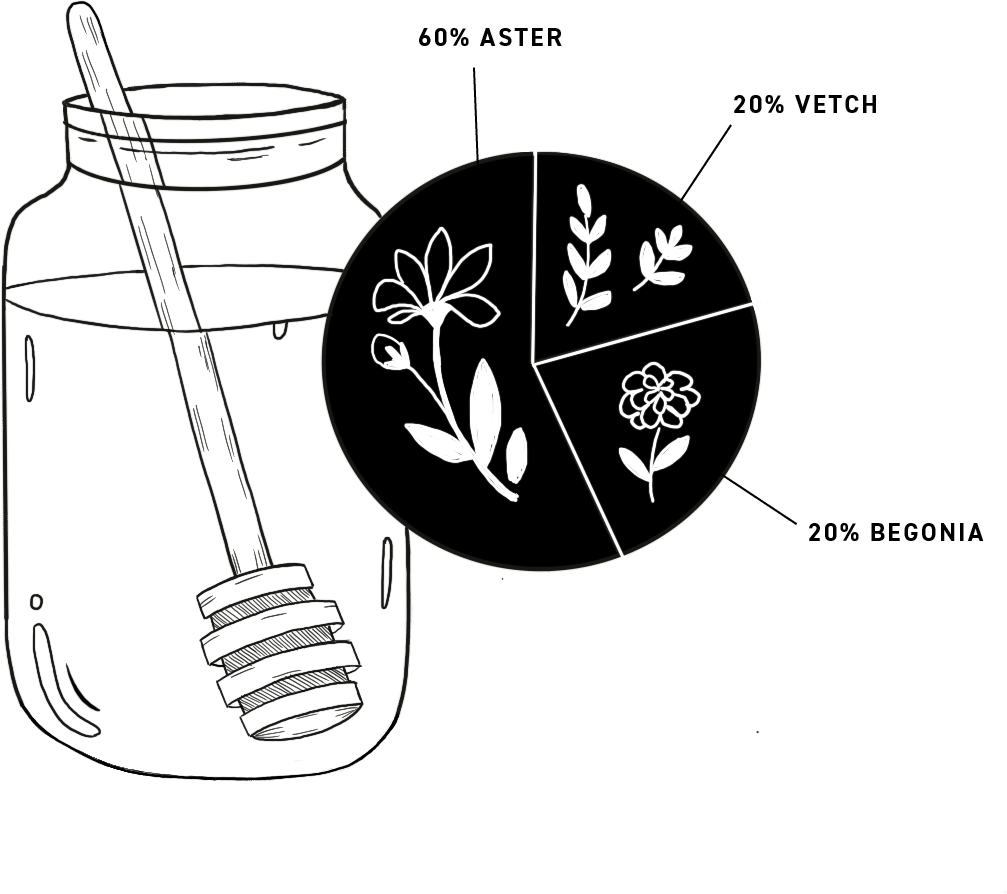
HoneyDNA
We pioneered the process of identifying the exact percentage of various pollen species found in honey through advanced genomic sequencing. Understanding where bees foraged reveals which plants best feed pollinators in the local environment.
Already Have a Hive?
At Best Bees, we’re proud to be a part of the local beekeeping community in every area in which we work.
If not already a member of one of the area’s beekeeping associations, we encourage you to join.
Join our Citizen Scientist movement! Here are some ways you can participate:
- Plant more pollinator habitats on your property
- Use bee-safe pesticide alternatives
- Get involved in local and national lobbying
- Submit your honey for HoneyDNA results — these will be shared with our nonprofit partner, The Urban Beekeeping Lab.
You can also post your data to bee Citizen Science programs like iNaturalist, The Great Sunflower Project, and Beecology Project.
We gladly share the learning from our research and our best practices with everyone. To learn more about our scientific team’s past and present work, visit our Research in Action page. Our Webinar and Video Resources page holds all of our webinars, as well as our CEO’s TEDx talks. Finally, check out our Blog, where you can find pollinator educational materials, beekeeping best practices, gardening information, and more thought leadership.
Frequently Asked Questions
We install and maintain honeybee hives on your property. Our expert beekeepers monitor the health of your bees and perform a variety of tasks throughout the year to help them thrive. At each visit, we also capture a range of metrics and share the data with renowned research partners to help the scientific community better understand the plight of pollinators. Towards the end of the season, we extract the honey and jar it for you.
About once per month for our Chicago Area hives. If your bees are distressed and need extra support, supplemental visits are included. We coordinate each visit in advance and send a summary report afterward.
Only a few square feet! A beehive takes up as little as 2’ x 2’ x 3’. Our beekeepers need a few feet around the hive to access it, and the bees’ flight path will need to be unrestricted.
We fully guarantee the health of our bees and queens. If a colony dies, we’ll replace it with a healthy one from our own stock at no additional cost. While we hope each of our hives will thrive for years to come, the reality is that pollinators are still dying at an unprecedented rate. In places like Chicago, where winters are often severe, we can lose 40-50% of our hives annually.
Our Boston-based headquarters is staffed full time and available Monday through Friday during work hours by phone or email to answer any questions. When a colony requires extra attention, additional visits are made at no cost to you.
Yes, we provide a range of event support packages for our commercial clients. See Hive Programs for Commercial Customers for details.
Green roofs earn credits toward a building’s LEED (Leadership in Energy and Environmental Design) certification. Green roofs provide vegetation for water control, wildlife habitat, and better urban air quality. Honeybees can help maintain the green roofs that are becoming more common in big cities and thus contribute to a building’s LEED rating.
We service hives in the city of Atlanta and throughout the metropolitan area in a 60-minute driving radius from the city center.
We handle visit scheduling for you. We’ll contact you at least 72 hours in advance via email.

